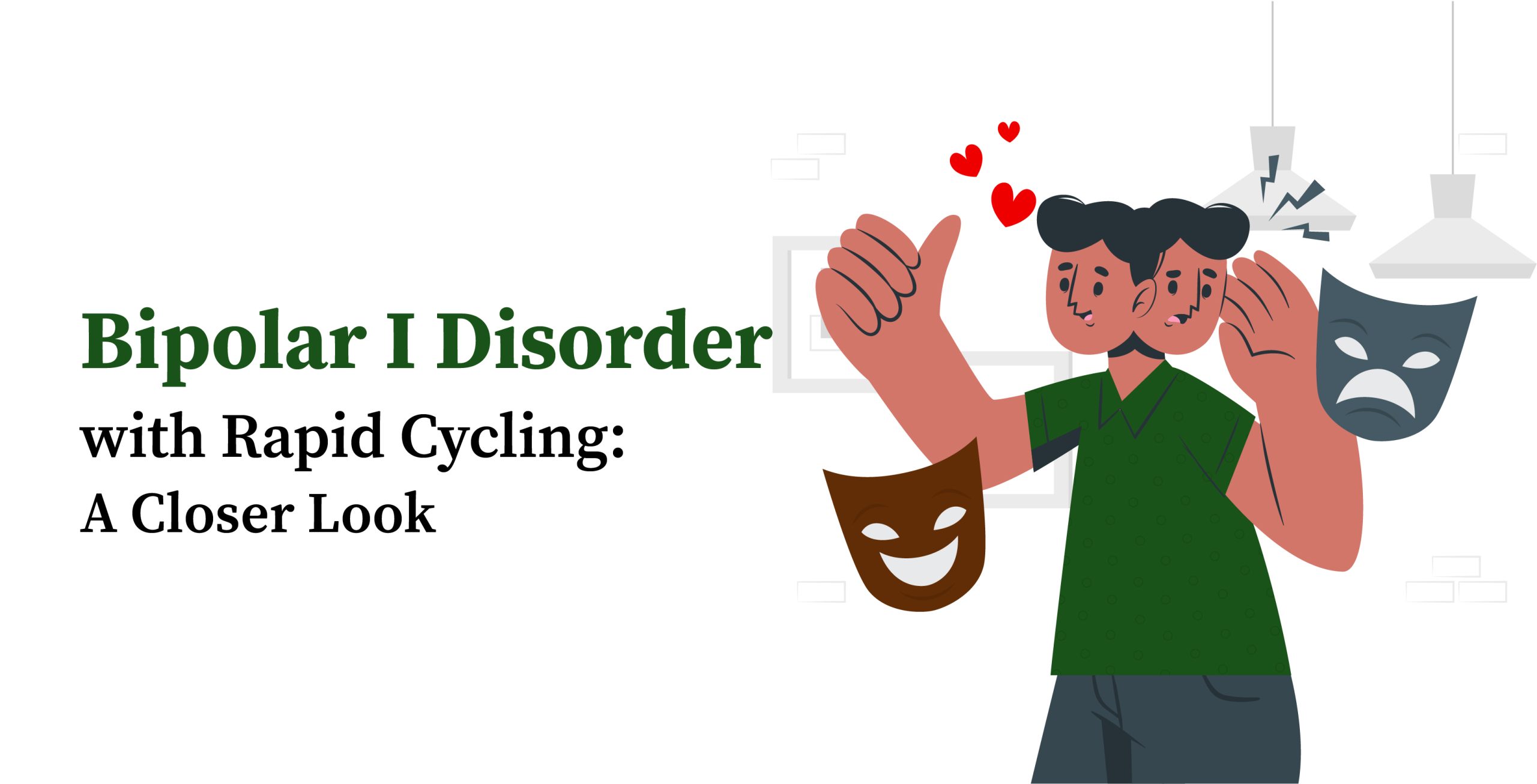
Bipolar I Disorder with Rapid Cycling: A Closer Look
Generally speaking, bipolar disorder is a complex and often misunderstood mental health condition, characterized by extreme mood swings that can drastically alter a person’s behavior, energy levels, decision-making, and ability to function. In previous posts, we have discussed the types of diagnoses; today, we will dive deeper into a particularly challenging stage where Bipolar Disorder 1 (BPD1) combines with Rapid Cycling.
The experience of rapidly cycling between hypomania, depression, and mixed states where you experience both at the same time is termed Cyclothymic Disorder. However, someone with BPD1 can experience rapid fluctuations in a cyclical, yet unpredictable, manner as well. For those dealing with rapid cycling, life can feel like a relentless rollercoaster of highs and lows. Let us explore what it means to live with BPD1 and Rapid Cycling, dive into the symptoms of bipolar 1 in adults, and discuss how one can take steps toward breaking free from this exhausting pattern.
What is Bipolar Disorder 1 with Rapid Cycling?
Mania & Depression: The Highs and Lows That Come at a Cost
- Lack of Sleep
- Racing Thoughts
- Shifting Eyes
- Rapid Speech
- Irascibility
- Hyper-Sexuality
- Impulsive Behavior
- Excessive Spending
- Thoughts of Grandeur
- Delusional Thoughts
- Crying spells
- Pessimism, Indifference
- Lack of energy, Fatigue
- Excessive Sleep
- Insomnia
- Unexplained Aches and Pains
- Irritability, Anxiety, Agitation, Anger
- Feeling Worthless, Hopeless, or Guilty
- Lack of Concentration, Forgetfulness
- Lost Interest in things once enjoyed
- Withdrawal from Social Situations
- Thoughts of Death, Self-harm, or Suicide
Trying to Escape the Rapid Cycling Roller Coaster
- Slow down: the body rebels against a person who is living in a state of imbalance. Reduce the number of activities in life to help convince the body it is being given space to rest and recover.
- Contact a psychiatrist immediately if one has not already to discuss if mood stabilizers, antipsychotics, and other medication types are temporarily the right course of action for stabilization.
- Avoid all caffeine, alcohol, and recreational drugs, as these will very likely make matters worse
- Maintain a regular, daily routine – especially training the body to go to bed and wake up at the same time after 8 hours, even if one doesn’t sleep the whole time.
- Eliminate processed foods (i.e. junk foods) from one’s diet. There is a direct correlation between poor diet and poor mental health. Grab a copy of the BPH e-book to receive three meal plans for free!
- Move the body with light exercise like walking 45 minutes to an hour in the morning.
- Confide in a close friend or family member when feeling unable to bear the intensity of rapid cycling.
